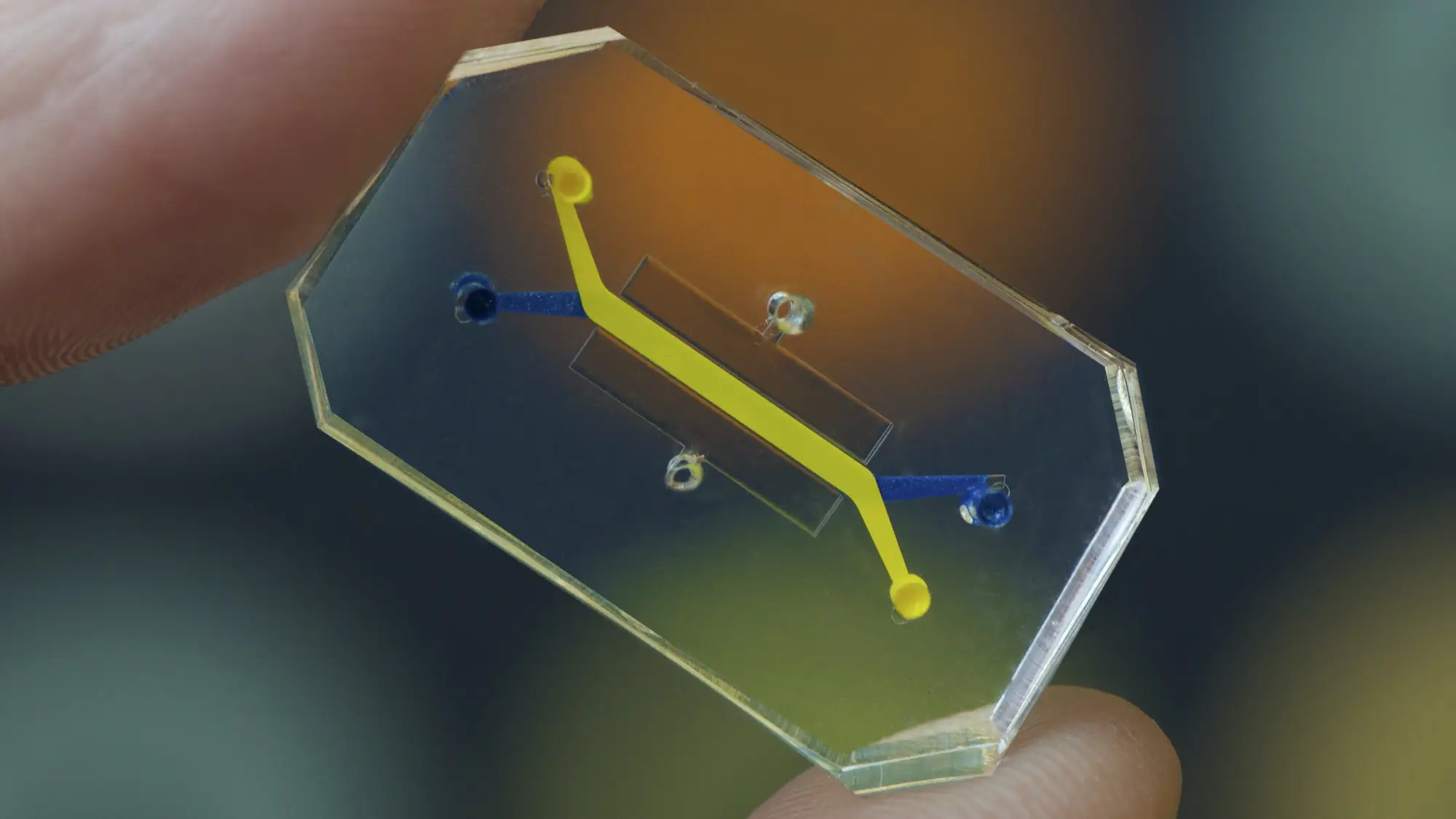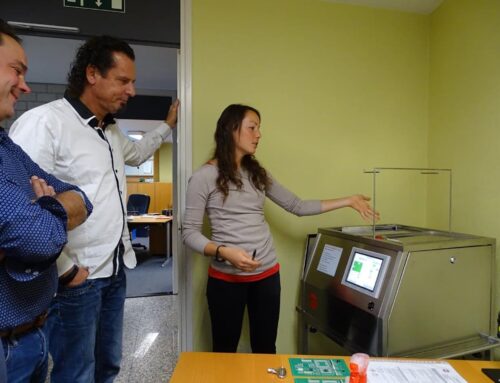Most people consider animal testing no longer done. The pharmaceutical industry is well aware of current feelings about this and is looking for alternatives. This search is also prompted by the costly and time-consuming nature of clinical testing. Sometimes there is simply no time for such testing, as is now the case with the rush to find a vaccine against the Covid-19 virus. A compounding issue is that clinical tests do not always yield the desired results, as only one in five tests is successful.
In the meantime, however, developments are visible in multiple fields speeding up the process and being more cost-efficient to test the effect of a vaccine on the human body. In this article we will look into a few developments.
The lung-on-a chip device was developed in the USA some years ago and is used to test new methods for the treatment of pulmonary oedema. The device has the size of a USB stick and consists of two hollow tubes that are connected with a membrane of porous material. The porous membrane allows an exchange between the organ-specific cell structures placed in the one tube with endothelium cells mimicking blood vessels placed in the other tube. The effects of medicine can be observed very clearly in this way. This video gives a brief explanation of the workings.
The body-on-a-chip is another development. On this platform ten different human organs can be simulated. They can be lung, liver, kidney, heart, intestines, skin and brains with a blood barrier. By linking all these organs it is possible to monitor the effect of medication throughout the body. This development is only in its infancy, but the first results are very encouraging.
Brain-on-a-chip is the greatest scientific challenge in the coming decades. Before they are able to actually work with human brain cells, scientists still have a long way to go. They are currently experimenting with the brain cells of rodents. These experiments show what the potential is of this scientific research.
Science is more and more focusing on minimising animal testing. Organs-on-a-chip offer many advantages in this respect and a lot of animal cruelty is prevented. We will closely watch the developments in this field and keep you posted.










